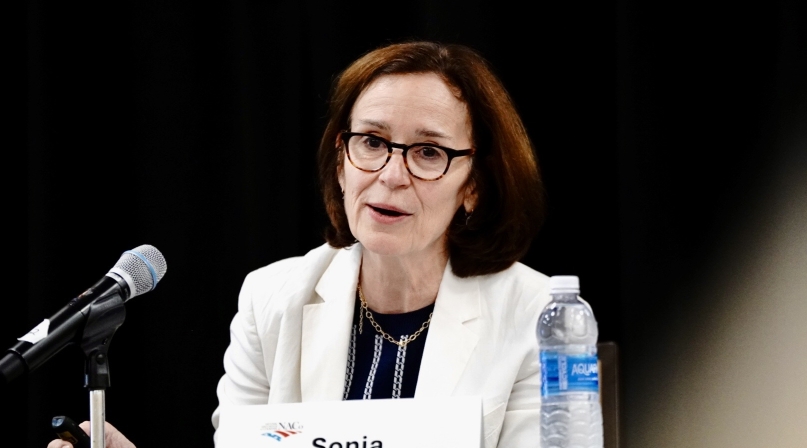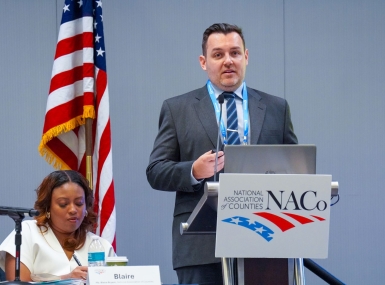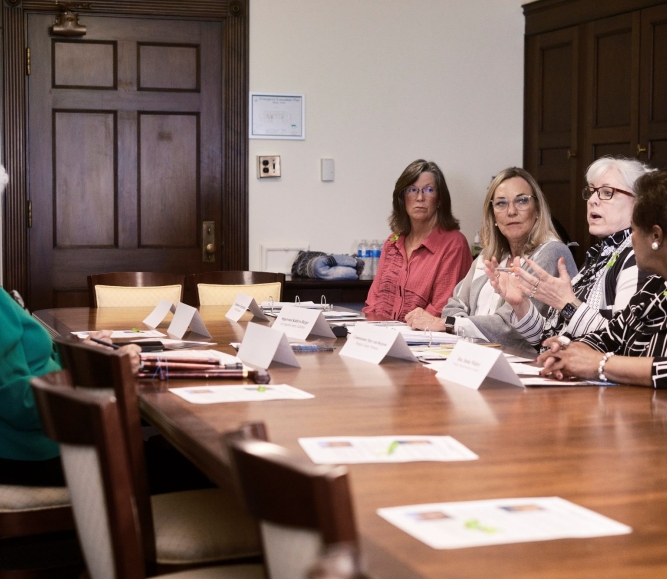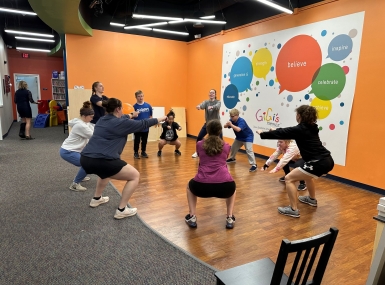Collaboration and mental health support address youth substance use disorder

Key Takeaways
Although substance use is down among youth in general, unintentional overdoses continue to rise, which is largely being driven by fentanyl and fake pills, data shows.
The path forward? Investing in mental health support, along with education on substance use for teens before they’re exposed to it, and harm reduction and peer support recovery once they are, said local, state and federal experts.
Health Steering Committee
July 12
At the federal level, the Substance Abuse and Mental Health Services Administration — SAMHSA — prioritizes prevention messaging, harm reduction, removing barriers to access medications for substance use disorder (including getting the opioid-reversal drug Naloxone into communities) and peer-centered recovery support, according to Sonia Chessen, SAMHSA’s deputy assistant secretary.
Engaging youth in prevention efforts surrounding drug use is important, she added, pointing to SAMHSA’s Fentanyl Awareness Youth Challenge, which encourages youth to pitch their own ideas on the best ways to educate their peers about the dangers and prevalence of fentanyl and fake pills.
Kevin Tanner, commissioner of the Georgia Department of Behavioral Health and Developmental Disabilities, echoed the importance of peer-centered recovery support at the state and local level: “People listen to people who are living their same experiences.”
Substance use and mental health are often co-occurring disorders, and young people who experience major depressive episodes are at least twice as likely to use substances, Chessen said. SAMSHA’s Strategic Prevention Framework-Partnerships for Success recognizes the overlap and works to address both by promoting community-based substance misuse prevention and mental health services, she added.
Counties are at the “forefront of the mental health crisis” and often play a critical role in delivering services to vulnerable populations, including youth, said Chatham County, Ga. Commissioner Helen Stone, chair of the Health Steering Committee. She pointed to the Georgia Behavioral Health Authority’s partnership with counties to open child and adolescent crisis centers as an example of how state and local entities can work together to support youth.
“A great deal of our work is done in close proximity to local community-based organizations, state agencies and other sectors to enhance service delivery, expand access and fortify support systems for young people,” Stone said. “These collaborative efforts are vital in addressing the unique and complex needs of youth in our communities."
Cambria County, Pa., which has consistently had one of the highest overdose death rates in the state, is using opioid settlement dollars to provide stronger mental health support for its youth. The county is partnering with REACH, a local clinical mental health non-profit, to place mental health clinicians in its high schools.
The project, RISE (Referral, Intervention, Support and Engagement), was created in response to a county comprehensive needs assessment on substance use prevention that found that many of its residents had undiagnosed, and therefore untreated, mental illnesses growing up, which led to them self-medicating with alcohol and drugs. RISE aims to reduce opioid overdoses and substance use disorder through tackling the root of mental health issues, according to Cambria County Commissioner Scott Hunt.
Since it started in 2022, RISE has served 892 students. The settlement dollars will allow the county to fund the program for 18 years.
“If we can even save one or two people from going down this road, it will be money well spent,” Hunt said.
Related News

Medicaid cuts threaten home and community-based care
Roughly 40% of home care workers live in low-income households and the majority rely on some form of public assistance, with about one-third relying on Medicaid.

County Countdown – February 25, 2025
Every other week, NACo's County Countdown reviews top federal policy advocacy items with an eye towards counties and the intergovernmental partnership. This week features budget reconciliation, FY 2025 funding deadline and more.
County News
Tackling youth mental health: Local and national strategies for change
Douglas County, Neb.’s “Here For You, For Them” is an initiative focused on mental health awareness and suicide prevention among youth, providing resources, support and education to help young people and their families navigate mental health challenges.


